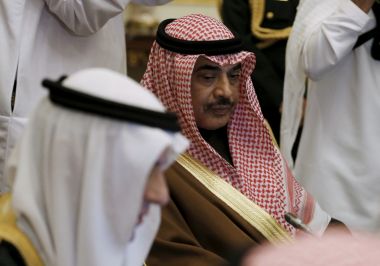 Plans to build churches in Kuwait have been rejected by MPs because they "contradict Islamic Sharia law".
Plans to build churches in Kuwait have been rejected by MPs because they "contradict Islamic Sharia law".
Sheikh Sabah al Khalid al Sabah is Kuwait's Emir and official leader
The Gulf country's government, which is unelected and seperate from the elected MPs in parliament, initially accepted the church building proposals and allocated a number of sites for construction.
However it was rejected by MPs in the legislature. Islamist MP Ahmad al-Azemi said he and other MPs would reject the plans because they "contradict Islamic Sharia law".
He said his rejection is based on constitutional and religious grounds since Islam is the official religion of Kuwait and the main source of legislation. He added that Islamic scholars are unanimous in banning the building of non-Muslim places of worship in the Arabian Peninsula.
News that the government had approved sites for church building was reported to local press by Ahmad al-Manfoohi, general director of the municipality. It was met with extensive public criticism and al-Azemi urged the government against taking decisions that weren't in line with the view of Kuwait's conservative religious society.
Kuwait's citizens are majority Muslim with an estimated 60-70 per cent Sunni and 30-40 per cent Shia, although there are no official figures.
However the Gulf state, which is a US ally, also has a significant Christian expatriate population although the number of Kuwaiti Christians is very low.
Despite its conservative society, Kuwait stands out from other Gulf monarchies for having the most open political system. Women have the right to vote and stand in elections, although one ruling family holds most of the key posts.
The parliament, made up of ruling MPs, has the most power of any elected body in the Gulf but the ruling family make up the municipality, or government, which has final say over key decisions



